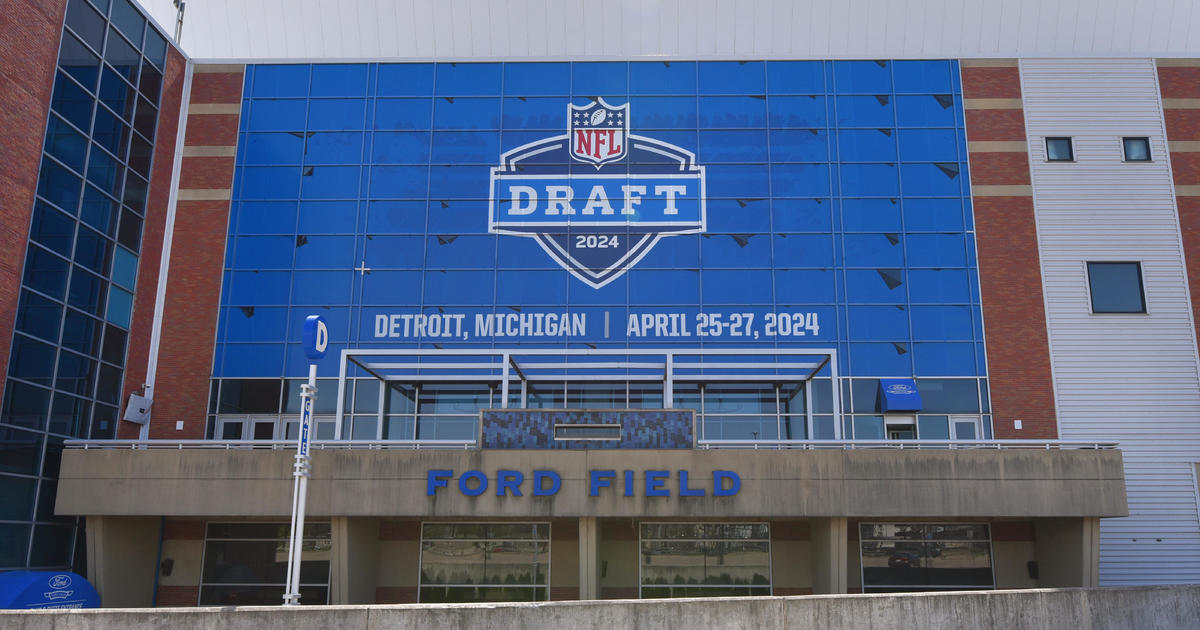Snyder: Schools, Cities Could Be Hurt By State Budget Impasse
MACKINAC ISLAND, Mich. (AP) — Gov. Rick Snyder warned Wednesday that the next state budget should be resolved soon because K-12 school districts and many municipalities start their fiscal year three months before the state does.
The Republican governor told The Associated Press that an impasse with GOP legislative leaders, who want to close the pension system to newly hired teachers, not only threatens a six-year streak of completing Michigan's spending plan by early June. Further delay, he said, would hurt schools and local governments that rely on state funding and must plan for their fiscal years that begin July 1.
"We're behind in terms of timing. ... It makes it challenging for them to know how to budget for their upcoming years," Snyder said during an interview at the Detroit Regional Chamber's Mackinac Policy Conference.
Top Republicans set "target" spending over the weekend without including Snyder, a first in his six-plus years in office. They want to move future school employees hired on or after Oct. 1 — the start of the state's budget year — from a hybrid pension/401(k) plan to a 401(k)-only system by setting aside $475 million to cover initial transition costs in the coming fiscal year. Snyder opposes the switch due to budgetary and other concerns.
Senate Majority Leader Arlan Meekhof indicated Tuesday that he would be meeting with Snyder on Mackinac Island to discuss the $55 billion spending plan and the Michigan Public School Employees Retirement System. But Snyder said he was unaware of any such meeting.
"If they want to talk, I'm happy to talk," he said, noting that he had proposed other ways to change the school retirement system before legislative leaders decided to dig in on the pension change.
Meekhof spokeswoman Amber McCann said Wednesday that while he and Snyder are not scheduled to meet at the conference, "I'm sure they'll talk." Gideon D'Assandro, spokesman for House Speaker Tom Leonard, said the House and Senate remain "way ahead of schedule."
Snyder said he favors retaining the hybrid approach — which was started in 2010 — but enriching the 401(k)-only option so new hires or current workers voluntarily choose it. Snyder and lawmakers in 2012 forced existing school employees to pay more toward retirement or receive a smaller pension, eliminated cost-of-living adjustments for new hires, and ended their retiree health insurance and replaced it with extra contributions to their 401(k).
"Many of these people weren't in the Legislature when we did the work. That was a relatively conservative plan that can provide as good or probably better outcome than a (defined-contribution) plan," he said of the blended system.
Snyder, who once worked as an accountant, referred to a document showing that the legacy pension plan for people hired before mid-2010 is about 60 percent funded, has $29 billion in unfunded liabilities and assumes annual investment returns of 7.5 percent. The hybrid plan is fully funded, has no debt and has a 7 percent assumed rate of return, according to Snyder.
Skeptical GOP legislators, however, have said debt in the blended system will inevitably pile up as employees age and eventually retire.
"The idea now is to stop the hole from getting bigger and finding the necessary dollars to fund that. It won't affect any of the people who are in the classroom today," Senate Education Committee Chairman Phil Pavlov, a St. Clair Republican and sponsor of legislation to make the switch, said recently.
*Copyright, Associated Press



